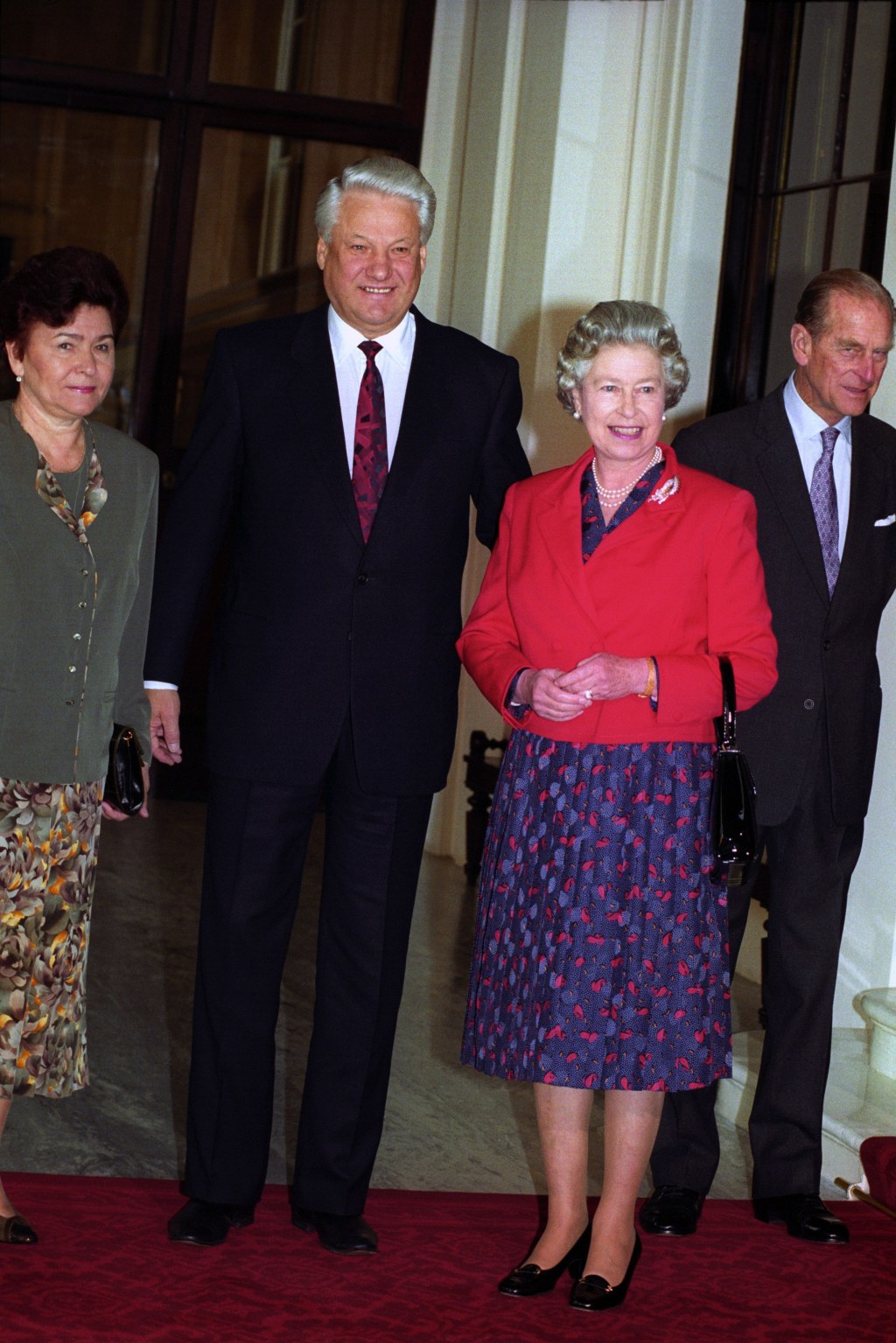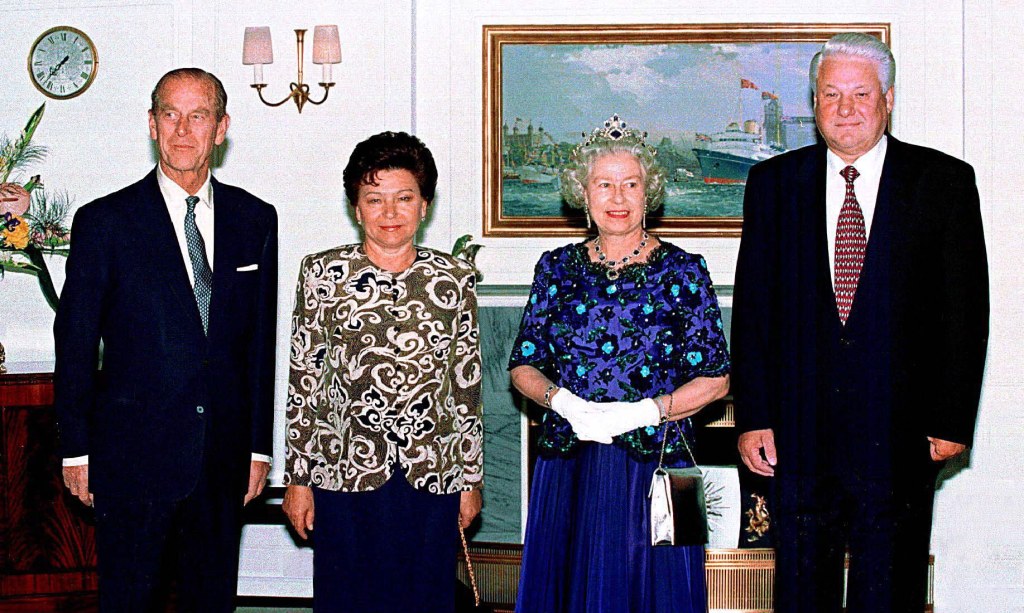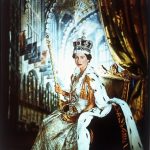The Dynamic Encounter Of Queen Elizabeth And Boris Yeltsin: A Tale Of Power And Diplomacy!
Queen Elizabeth and Boris Yeltsin: A Historic Encounter
Introduction
Dear Queen Elizabeth admirers,
Welcome to this informative article that explores the intriguing relationship between Queen Elizabeth and Boris Yeltsin, two influential figures in history. In this piece, we will delve into their encounters, the impact they had on each other, and the significance of their relationship for their respective countries. Prepare to be captivated by the fascinating tale of two remarkable leaders.
2 Picture Gallery: The Dynamic Encounter Of Queen Elizabeth And Boris Yeltsin: A Tale Of Power And Diplomacy!


Table: Queen Elizabeth and Boris Yeltsin
Here is a comprehensive table providing detailed information about Queen Elizabeth and Boris Yeltsin:
Queen Elizabeth
Boris Yeltsin

Image Source: hearstapps.com
Birthdate: April 21, 1926
Birthdate: February 1, 1931
Country: United Kingdom
Country: Russia
Role: Queen of the United Kingdom
Role: First President of the Russian Federation
Reign: February 6, 1952 – Present
Presidency: July 10, 1991 – December 31, 1999

Image Source: hearstapps.com
Accomplishments: Longest-reigning current monarch, experienced significant political and social changes during her reign
Accomplishments: Oversaw the transition of Russia from a communist state to a democratic one
What is the Background of Queen Elizabeth and Boris Yeltsin?
Queen Elizabeth, born on April 21, 1926, is the current reigning monarch of the United Kingdom. She ascended to the throne on February 6, 1952, and has since become the longest-reigning current monarch. Throughout her reign, Queen Elizabeth has witnessed significant political and social changes in her country, making her a symbol of stability and continuity.
Boris Yeltsin, born on February 1, 1931, was the first President of the Russian Federation. He served as the President from July 10, 1991, to December 31, 1999. Yeltsin played a crucial role in the transition of Russia from a communist state to a democratic one, making him a prominent figure in modern Russian history.
Who were Queen Elizabeth and Boris Yeltsin?
Queen Elizabeth, also known as Elizabeth II, is the Queen of the United Kingdom and other Commonwealth realms. She is the head of state and has taken on numerous ceremonial duties throughout her reign. Queen Elizabeth is admired for her dedication to public service and her ability to adapt to the changing times.
Boris Yeltsin, on the other hand, was a key political figure in Russia. He played a pivotal role in dismantling the Soviet Union and establishing a democratic system in Russia. Yeltsin was known for his charismatic leadership style and his commitment to bringing about political and economic reforms in his country.
When Did Queen Elizabeth and Boris Yeltsin Interact?
Queen Elizabeth and Boris Yeltsin had several interactions during their respective terms. One notable encounter took place in 1994 when Queen Elizabeth hosted a state visit for Yeltsin in the United Kingdom. This visit was significant as it aimed to improve diplomatic relations between the two countries and strengthen bilateral ties.
Another significant interaction occurred in 1996 when Queen Elizabeth made a historic visit to Russia. This visit marked the first time a British monarch had visited Russia since the Russian Revolution in 1917. The visit was seen as a symbol of goodwill and played a crucial role in fostering positive relations between the two nations.
Where Did Queen Elizabeth and Boris Yeltsin Meet?
Queen Elizabeth and Boris Yeltsin met in various locations during their interactions. In 1994, they met in the United Kingdom during Yeltsin’s state visit. The meetings took place at Buckingham Palace and included formal banquets, cultural exchanges, and discussions on matters of mutual interest.
In 1996, Queen Elizabeth traveled to Russia for her historic visit. The meetings between the two leaders were held at the Grand Kremlin Palace in Moscow, with various events and ceremonies highlighting the diplomatic significance of the visit.
Why Did Queen Elizabeth and Boris Yeltsin’s Relationship Matter?
The relationship between Queen Elizabeth and Boris Yeltsin held significant importance for both the United Kingdom and Russia. Their interactions helped foster closer diplomatic ties and promote mutual understanding between the two countries. The visits and meetings between the two leaders showcased the desire for cooperation and collaboration, paving the way for future diplomatic endeavors.
How Did Queen Elizabeth and Boris Yeltsin Impact Their Countries?
Queen Elizabeth’s reign has been marked by stability and adaptability. Her ability to navigate the changing political landscape and maintain the relevance of the monarchy has solidified her position as a respected figurehead in the United Kingdom. Queen Elizabeth’s dedication to public service and her unwavering commitment to her role have greatly impacted the perception and continuation of the monarchy.
Boris Yeltsin’s presidency was a turning point in Russian history. His leadership during the transition from communism to democracy brought about significant political and economic changes in the country. Yeltsin’s reforms paved the way for a more open and market-oriented society, albeit with certain challenges and setbacks.
Advantages and Disadvantages of Queen Elizabeth and Boris Yeltsin
Advantages of Queen Elizabeth:
Symbol of stability and continuity
Adaptability to changing times
Dedication to public service
Disadvantages of Queen Elizabeth:
Perceived by some as being detached from everyday life
Criticism for the monarchy’s cost to taxpayers
Limited political power
Advantages of Boris Yeltsin:
Instrumental in the transition to democracy in Russia
Promotion of political and economic reforms
Increased international cooperation and diplomacy
Disadvantages of Boris Yeltsin:
Challenges with economic stability during the transition period
Criticism for his handling of the Chechen conflict
Controversies surrounding his presidency
Frequently Asked Questions (FAQs)
1. What was the significance of Queen Elizabeth’s visit to Russia in 1996?
Answer: Queen Elizabeth’s visit was a symbol of goodwill and played a crucial role in fostering positive relations between the United Kingdom and Russia. It marked the first visit by a British monarch to Russia since the Russian Revolution in 1917.
2. How did Boris Yeltsin contribute to the transition from communism to democracy in Russia?
Answer: Boris Yeltsin played a key role in dismantling the Soviet Union and establishing a democratic system in Russia. His reforms paved the way for a more open and market-oriented society.
3. What challenges did Queen Elizabeth face during her reign?
Answer: Queen Elizabeth faced challenges such as criticisms for being detached from everyday life, the monarchy’s cost to taxpayers, and limited political power.
4. What criticisms were directed towards Boris Yeltsin during his presidency?
Answer: Boris Yeltsin faced criticisms for economic instability during the transition period, his handling of the Chechen conflict, and controversies surrounding his presidency.
5. How did the interactions between Queen Elizabeth and Boris Yeltsin impact diplomatic relations between the United Kingdom and Russia?
Answer: The interactions between Queen Elizabeth and Boris Yeltsin helped foster closer diplomatic ties and promote mutual understanding between the United Kingdom and Russia. Their visits and meetings showcased a desire for cooperation and collaboration.
Conclusion
In conclusion, the relationship between Queen Elizabeth and Boris Yeltsin had a significant impact on both the United Kingdom and Russia. Their encounters and interactions helped foster closer diplomatic ties and promote mutual understanding between the two nations. Queen Elizabeth’s stability and adaptability, along with Boris Yeltsin’s role in the transition from communism to democracy, have shaped the history of their respective countries. Their stories serve as a testament to the power of leadership and diplomacy.
Final Remarks
As we wrap up this article, it is important to recognize the lasting impact of Queen Elizabeth and Boris Yeltsin. Their contributions to their countries and the world should be acknowledged and celebrated. We hope that this article has provided you with valuable insights into their lives and the significance of their relationship. Thank you for being a Queen Elizabeth enthusiast, and may their stories continue to inspire us all.
This post topic: Queen Elizabeth

